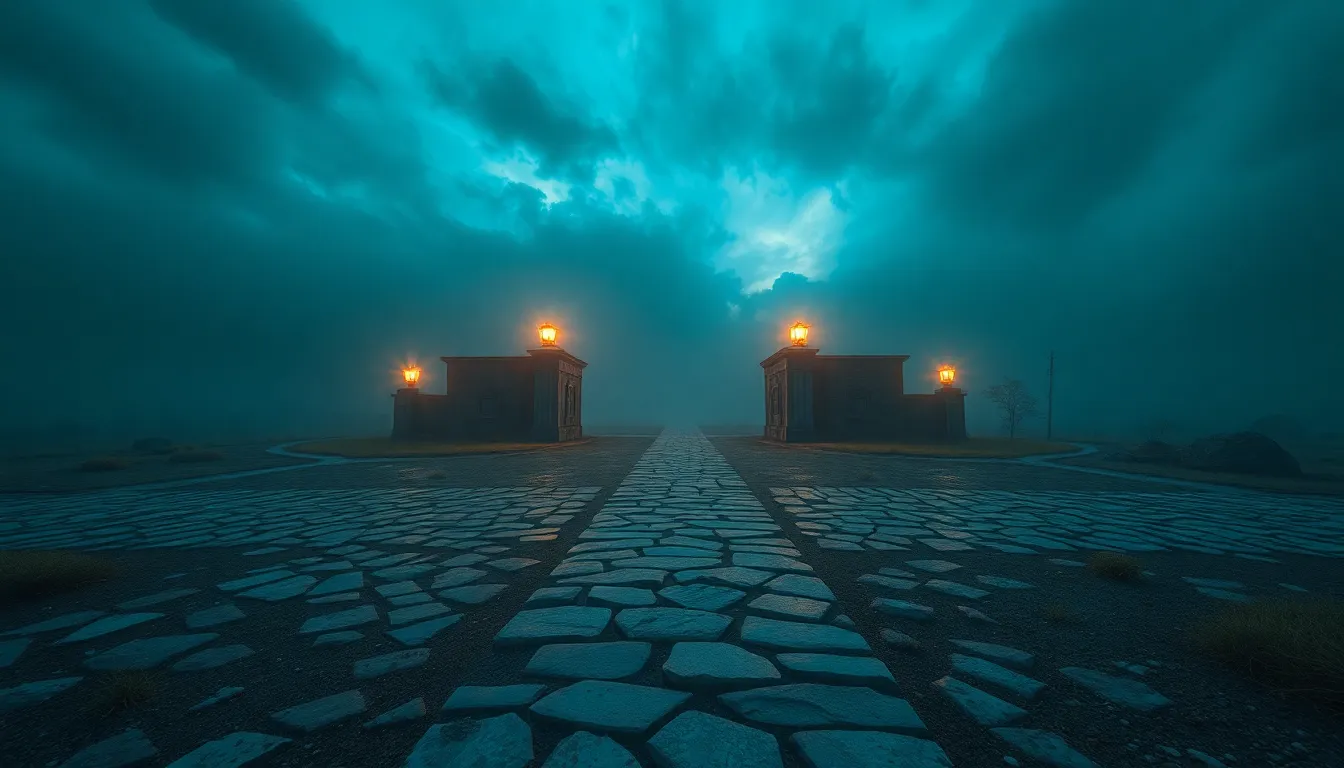The Mythical Crossroads: Sacred Places of Choice and Destiny
Introduction to the Concept of Crossroads
The concept of crossroads holds a profound place in mythology and culture, representing not only a physical intersection of paths but also a metaphorical point of decision-making in life. A crossroads signifies a moment where choices must be made, often with significant consequences for the future. This symbolic representation resonates deeply in the human experience, as it encapsulates the essence of choice and destiny.
Historical Context of Sacred Crossroads
Throughout history, sacred crossroads have been interpreted in various ways by ancient civilizations. These places were often seen as sites of divine intervention or spiritual significance. For example, in many cultures, crossroads were considered the domain of spirits or deities, where the living could communicate with the divine.
In folklore and religious texts, crossroads frequently appear as pivotal points in narratives. They are often depicted as places where individuals encounter supernatural beings or are faced with moral dilemmas that shape their destinies.
Cultural Representations of Crossroads
Crossroads are represented in diverse ways across different cultures:
- Africa: In many African cultures, crossroads are seen as sacred places where the physical world meets the spiritual realm. They are often associated with rituals to honor ancestors.
- Europe: European folklore often portrays crossroads as sites of witchcraft and magic, where deals with the devil can be made.
- Asia: In Asian traditions, crossroads may symbolize the journey of life, with choices leading to enlightenment or confusion.
- The Americas: Indigenous cultures view crossroads as significant locations for vision quests and spiritual ceremonies.
These varying representations highlight the universal themes of choice, sacrifice, and transformation associated with crossroads across cultures.
The Spiritual Significance of Crossroads
Crossroads serve as liminal spaces—thresholds between different states of being. They embody the tension between the known and the unknown, the chosen and the forsaken. Within these spaces, individuals often engage in rituals and practices that facilitate connection with the spiritual world.
Common rituals at sacred crossroads may include:
- Offerings to deities or spirits.
- Prayers or invocations seeking guidance.
- Ceremonial dances or songs that honor the significance of the location.
Famous Mythical Crossroads in Literature and Folklore
Many stories and legends feature crossroads as crucial turning points. One of the most famous is the tale of blues musician Robert Johnson, who allegedly made a pact with the devil at a crossroads to gain extraordinary musical talent. Similarly, the Faustian bargain—where Faust sells his soul for knowledge—illustrates the themes of choice and destiny that are often intertwined at these mythical locations.
These narratives explore the consequences of choice and the moral complexities that arise when individuals confront their desires against the backdrop of fate.
Modern Interpretations of Crossroads
In contemporary literature, film, and art, the metaphor of the crossroads continues to resonate. Characters often find themselves at crossroads, symbolizing pivotal moments in their personal journeys. This motif encourages audiences to reflect on their own lives and the choices they face.
Modern interpretations often highlight:
- The importance of self-discovery and personal growth.
- The struggle between societal expectations and individual desires.
- The potential for transformation through decision-making.
Psychological Implications of Crossroads
The intersection of choice, fate, and free will is a profound area of exploration in psychology. The concept of crossroads can be analyzed through various theoretical lenses, including existential psychology, which emphasizes personal responsibility and the impact of choices on one’s life trajectory.
Case studies of individuals facing pivotal life decisions reveal the complexities associated with crossroads. Many report feelings of anxiety, excitement, and uncertainty, reflecting the weight of their choices.
The Role of Crossroads in Spiritual Practices
Various spiritual traditions incorporate the concept of crossroads into their practices. For instance, in hoodoo, crossroads are seen as powerful places for spellwork and divination. Shamanic practices often involve journeys to crossroads as part of spiritual quests for knowledge and healing.
Modern spiritual seekers engage with the concept of the crossroads by:
- Creating personal rituals to mark significant life transitions.
- Using meditation to reflect on choices and their implications.
- Seeking guidance from spiritual mentors or communities.
Crossroads as a Metaphor for Societal Change
Crossroads are not only personal landmarks but also symbolize societal change. They represent moments of collective decision-making and pivotal events that shape the course of history. Significant movements, such as civil rights or environmental activism, often emerge from a metaphorical crossroads where communities must choose a direction.
Historical examples of pivotal moments include:
- The signing of the Declaration of Independence—an ideological crossroads for the American colonies.
- The fall of the Berlin Wall—symbolizing a crossroads for freedom and unity in Europe.
- The civil rights movement—where activists faced crucial decisions that shaped the future of equality.
Conclusion: Embracing the Crossroads in Our Lives
Crossroads invite reflection on the personal significance they hold in our lives. Each individual encounters moments of choice that can lead to growth, transformation, and a deeper understanding of oneself. By recognizing and embracing these pivotal moments, we can navigate the complexities of life with greater awareness and intention.
In conclusion, the crossroads serve as sacred opportunities for reflection, decision-making, and ultimately, transformation. They remind us of the power inherent in our choices and the paths we can forge in our journeys.



